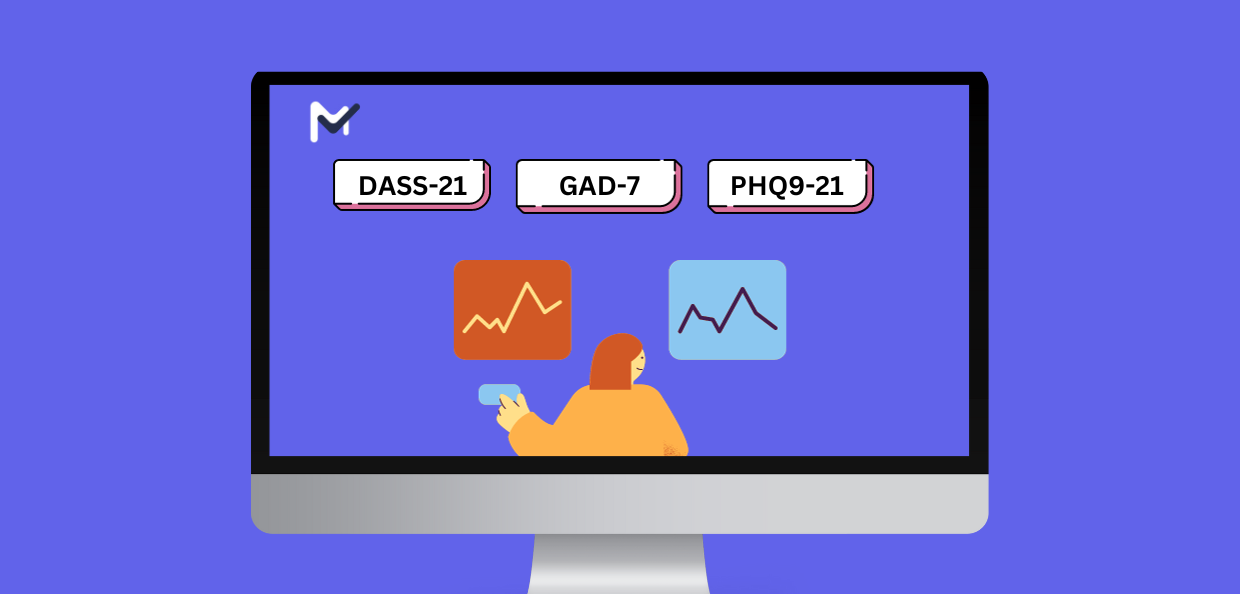The Future of Mental Health Assessment: Advancing with Patient-Reported Outcome Measures (PROMs) and Analytics
As we step into 2024, the landscape of mental health care continues to evolve at a rapid pace. Central to this transformation is the integration of Patient Reported Outcome Measures (PROMs) and Mental Health Analytics into the fabric of psychological assessments. In this era of data-driven decision-making, platforms like Measurely are at the forefront—revolutionising how we use mental health assessment data to guide high quality treatment.
The Rise of PROMs in Mental Health
The concept of standardised psychological assessment is not new in mental health—but the emphasis on adopting patient-reported outcome measures has skyrocketed in recent years. This may be because consistent administration of outcome measures has been shown to prevent premature patient dropout, magnify treatment gains, improve the therapeutic alliance between patient and clinician and enhance communication within teams—while also providing tangible insights into symptom severity, diagnosis and risk. In 2024, the adoption of PROMs is expected to become more prevalent, as mental health professionals seek easier and more accurate methods to track therapeutic progress and treatment effectiveness.
PROMs: A Game-Changer in Patient-Centred Care
PROMs have emerged as a game-changer in the arena of patient-centred mental healthcare. Their usage provides patients with more autonomy and input during the assessment process—addressing concerns around power imbalances during treatment. Research has also shown that outcome measures can empower patients to raise difficult issues with their clinician, and are helpful as a scaffold for discussion about problems that the patient may have otherwise forgotten to raise. Patients’ responses to questionnaire items can provide a clear sense of direction in therapy, and help to normalise the patient’s experience. Measurely uses PROMs to provide a nuanced and holistic impression of the patient and their difficulties. Check out the list of outcome measures here.
Mental Health Analytics: Unlocking New Insights
Unlike disciplines such as professional sport and digital marketing, the mental health field has been slow to embrace the concept of analytics—which can be defined as the process of discovering, interpreting and communicating significant patterns in data. Although many practitioners regard themselves as “scientist practitioners”, very few have developed the infrastructure required for data-driven decision-making using Mental Health Analytics. At Measurely, we believe that clinicians should be able to capture data and then rapidly analyse it to understand group-level outcomes—based on subsets of patient characteristics, presenting problems or the treating practitioner. This level of analysis enables organisations to make sound decisions about their overall clinical direction, and the interventions that are required to work effectively with specific patient groups. Without mental health analytics, clinicians continue to fly blind. Fortunately, at Measurely we have invested significant amounts of energy into building a dedicated feature that supports Mental Health Analytics.
The Integration of Technology and Compassion
As we harness the potential of Patient-Reported Outcome Measures and Mental Health Analytics, it’s important to remember that the heart of psychological care remains human compassion and understanding. Tools like Measurely are designed to enhance, not replace, the therapeutic relationship. They provide clinicians with the data needed to make informed decisions, whilst maintaining a focus on patient-centred care.
Looking Ahead: The Future of Mental Health Assessment
The future of mental health assessment is bright and promising. With advancements in PROMs and analytics, we are moving towards a more nuanced and effective approach to mental healthcare. Platforms like Measurely are leading the charge, ensuring that both clinicians and patients have access to the best tools for understanding and improving mental health.
Conclusion:
As we navigate the complexities of mental health in 2024, the integration of outcome measures and analytics will play a pivotal role. By embracing these tools, we can enhance the effectiveness of mental health treatments and ensure that every individual receives the personalised care they deserve. The future is here, and it’s data-informed, patient-centred, and more exciting than ever.


